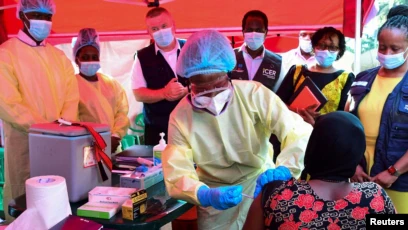The Nigeria Centre for Disease Control and Prevention (NCDC) has moved to allay public fears by confirming that two recent suspected cases of viral hemorrhagic fever in Abuja have tested negative for both the Ebola and Marburg viruses. The announcement came in a public health advisory issued on Friday, aimed at providing clarity amid growing public concern and speculation.
The advisory, signed by the NCDC’s Director General, Dr. Jide Idris, noted that while the initial tests were conclusive for Ebola Virus Disease (EVD) and Marburg, further analysis is ongoing for other viral hemorrhagic fevers, including Lassa fever and dengue fever. The NCDC commended the vigilance of the patient and the attending clinicians at Nisa Premier Hospital in Abuja, whose swift action ensured a rapid and coordinated public health response.
Understanding the Viruses
The public health advisory provided a brief overview of the diseases that were ruled out. EVD, previously known as Ebola Hemorrhagic Fever, is a severe and often deadly illness caused by the Ebola virus, with a fatality rate ranging from 25 to 90 per cent. The virus can be transmitted from animals to humans, particularly through contact with infected live or dead animals, or from person to person through contact with the body fluids of an infected human.
Marburg virus disease, a close relative of Ebola, is also a highly infectious illness with a similar transmission pattern. Both viruses can cause severe symptoms, including high fever, muscle pain, and, in severe cases, internal bleeding and organ failure.
A Proactive Public Health Response
According to the NCDC, the swift investigation into these suspected cases is part of a broader, nationwide readiness plan. Following recent reports of Ebola outbreaks in other countries, the agency has already activated “anticipatory measures.” These include strengthening surveillance at points of entry, placing isolation and treatment facilities on alert, and pre-positioning critical infection-prevention supplies. The NCDC’s national reference laboratories are on standby for rapid testing, and public health teams are prepared to conduct contact tracing if needed.
The NCDC urged Nigerians to maintain good hygiene, avoid contact with symptomatic persons, and seek medical care immediately if symptoms develop, especially after travel. The agency also advised against the spread of misinformation and rumors, encouraging the public to rely only on official updates from the NCDC and authorized government sources.
Source: Punch








